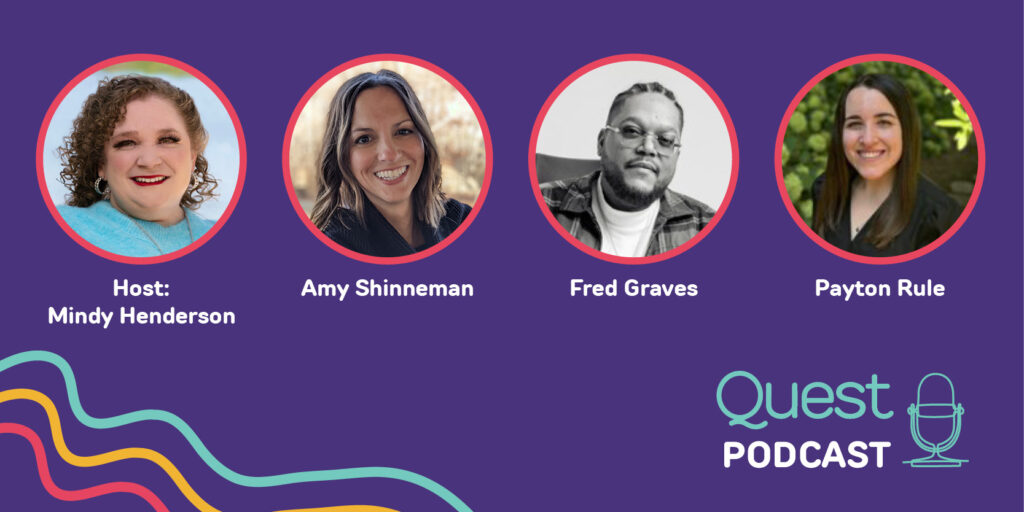
Accessibility and Workplace Rights & Resources
By Mandy Behling | Wednesday, October 12, 2022
For those living with a disability who are looking to join or remain in the workforce, the MDA Resource Center offers valuable tips for finding a job that plays to your strengths with an employer who recognizes your talent.
Connect with Ticket to Work
This free program of the Social Security Administration allows Social Security Disability Insurance (SSDI) or Supplemental Security Income (SSI) beneficiaries to explore work options without losing benefits. For some people with disabilities, income from employment could jeopardize government benefits like Medicaid, that help cover costs for personal care attendants. Josie Badger, DHCE, CRC, founder and president of J Badger Consulting advises that before starting a job hunt, “You need to start those conversations, know your earning limits, and know what decisions you will have to make.”
Use this resource: Ticket to Work
Seek companies that want a diverse workforce
Browse potential employers’ websites to learn about their core values on diversity and inclusion (D&I) and note how prominently disabilities and accommodations factor into their D&I policies and initiatives. You can also use online employment search tools that help candidates connect to inclusive employers. “We all need to be looking at jobs with organizations that want us,” Josie says.
Use these resources: Disability:IN, Inclusively
Be yourself
The ADA doesn’t require jobseekers to disclose disabilities prior to receiving a job offer, but Sarah Schwegel, an organizing and advocacy specialist with Paraquad, recommends speaking about it early and candidly. In her experience, talking openly about her disability makes employers more comfortable and willing to have conversations about accommodations, diversity, and inclusion. “The best way to eliminate the stigma and discrimination around disability is to be real,” Sarah says. “Talk about your disability and normalize the conversation. Disability is an extremely normal part of human existence.”
Use this resource: ADA National Network
Pitch disability as a strength
Think about the myriad of skills that you have gained in all areas of your life, not just on the job. Sarah often mentions her disability in cover letters and interviews to illustrate professional skills she has developed throughout her lifetime. “You can talk about your drive and work ethic and how you are able to problem solve in challenging situations,” she says. “Every person with a disability has to do some pretty impressive problem solving, whether it’s coordinating transportation, managing personal care attendants, or making sure that their world is accessible. We absolutely can use that to our advantage when we are applying for jobs.”
Use this resource: Lime Connect
Clearly state the accommodations that you need for success
There’s a wide range of potential accommodations, from permission to work from home or flexible hours to voice-to-text software. Be specific in requesting the supports that will help you perform your best. “If you anticipate ever needing an accommodation, be upfront and put it in writing,” Josie says. “You can talk about it first, but then follow-up with an email that outlines the conversation you had. And then save it so you have documentation.”
Use this resource: Job Accommodation Network
Being able to access a safe and equitable workplace is incredibly important. It’s equally important to understand workplace rights that will allow you to access programs, assistance, and protections.
The Americans with Disabilities Act (ADA) requires employers to make reasonable accommodations to allow employees to perform essential or major functions of their positions.
In addition, the US Equal Employment Opportunity Commission’s (EEOC) Enforcement Guidance on Reasonable Accommodation and Undue Hardship Under the ADA states that, for many jobs, working from home may be a reasonable accommodation for people with disabilities.
For more information on interview tips, answers regarding accessibility, and work from home options, please take a look at the following articles:
Next Steps and Useful Resources
The MDA Resource Center is here to help answer questions and provide resources and support Monday – Friday, 9am-5pm CST. You can reach the Resource Center team by phone at (833) 275-6321 or email directly at ResourceCenter@mdausa.org.
Disclaimer: No content on this site should ever be used as a substitute for direct medical advice from your doctor or other qualified clinician.




